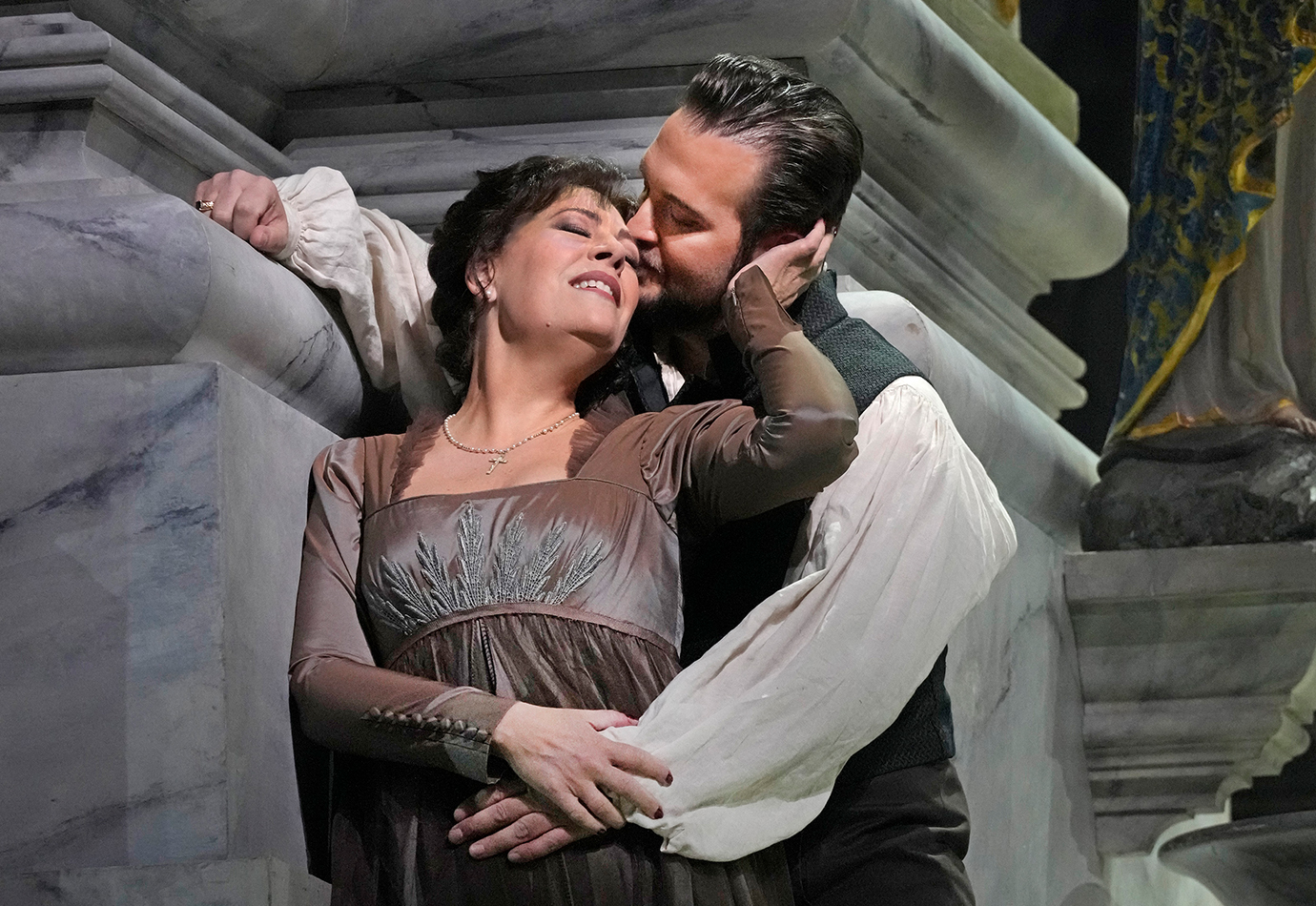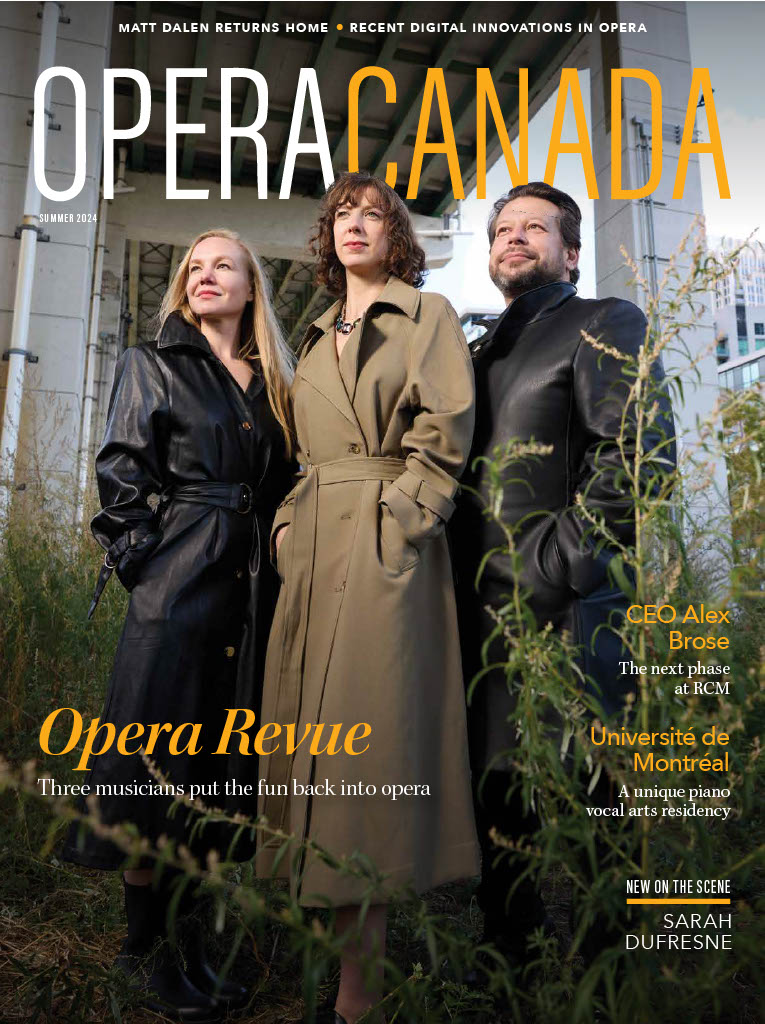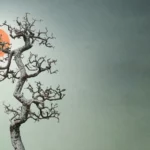So much press hoopla has been lavished on the Met’s two new operas, Terence Blanchard’s Fire Shut Up in My Bones and Matthew Aucoin’s Eurydice—Fire alone inspired four feature articles in The New York Times, not to mention an opinion column and an actual review—that the bread-and-butter revivals that dominate the repertory risk not being accorded their due. That, happily, wasn’t the case with the two I caught, October’s Die Meistersinger and December’s Tosca (I saw its prima, on the 2nd). Wagner’s opera, never a favourite of mine, benefited from a near-ideal cast and, in Antonio Pappano, an unassertively eloquent conductor. The Puccini, from a soprano, a tenor, and a conductor all adept at stirring up excitement. And both profited from old-style productions that don’t play fast and loose with their texts, that allow the singers ample leeway for asserting their own ideas of how to inhabit their roles, not some overclever director’s. Both, too, are the kind of opera that work best at the Met: big, capable of holding their own in the oversized auditorium, unlike Fire or Eurydice or nearly any work composed in the last half-century, with the notable exceptions of the grandiose historical pageants of Philip Glass.
The Met’s Meistersinger, directed by Otto Schenk with decor by Günther Schneider-Siemssen, dates from 1993 and is beginning to show its age. Its Tosca, on the other hand, is just under four years old, and John Macfarlane’s spaciously realistic sets look as handsome as ever. Director David McVicar fills them with fine but never fussy detail: it’s striking just how chillingly effective the end of Act II can be when librettists Illica and Giacosa’s stage directions (après Sardou), so keenly captured in sound by Puccini, are followed scrupulously instead of scrupulously dismissed, as they were by Luc Bondy in this production’s deservedly short-lived predecessor.
The current Tosca—and the Met couldn’t have found a better—is Sondra Radvanovsky, whom I’ve seen in both productions, and there’s no doubt of the one in which she more fully blossoms, even if McVicar (or Gina Lapinski, who rehearsed the revival) occasionally allows her too much latitude: that stagey sobbing in Act I, for example, might have worked well for the original Tosca, Hariclea Darclée, and many of her early-20th-century successors, but by 2021 most of us, conditioned by movies and TV, expect something a little closer to a real-world norm. But that’s a decided exception to her exceptional portrayal: this was the third time I’ve seen it onstage (my sixth or seventh encounter, counting broadcasts and streams), and no two performances have been alike: she’s been alertly responsive to each one’s peculiar circumstances and demands. No one today rises to the role’s big moments more excitingly than she does, with those house-engulfing top notes, but also with the requisite delicacy when needed: her “Vissi d’arte” triggered a clamorously lengthy ovation, with cries of “Bis!” surely inspired by the knowledge that she’d famously obliged with an encore this past summer in Madrid. (She didn’t, despite the communal willpower, give one here.)
She enjoyed a notable chemistry with her new Cavaradossi, Brian Jagde, making a belated return to his hometown house, where he’d first—and last—sung in 2014, in the small role of Elemer in Arabella. In between Met engagements, he’s firmly established himself as a leading tenor in Europe, and back on the Met stage he showed a star’s easy presence, tall and beefily handsome, with a handsome voice to match, capped by clarion high notes. It’s not, timbrally, an Italianate voice, though, and his style, too, lacks a certain italianità—I missed, for example, in “E lucevan le stelle,” those niceties of dynamics and phrasing that Joseph Calleja so winningly supplied in Radvanovsky’s last run of Met Toscas. But when she and Jagde joined voices in the big duets, there was no denying the visceral thrill they created, and at curtain call he received a hero’s welcome home.
Perhaps it was the temptation offered by two such decibel-generating voices that prompted Yannick Nézet-Séguin, too, to pump up the volume; conducting his first full Tosca at the Met (he’d led Act I for the New Year’s Eve Netrebko gala in 2019), he announced his intentions posthaste with a thunderous opening statement of the Scarpia theme, then concluded Act I with the most clangorous “Te Deum” I can remember hearing, with each burst of the cannon raising goose bumps—it was exciting, no doubt, but poor George Gagnidze, the Scarpia, just couldn’t compete in what is, after all, Scarpia’s monologue at least as much as it is a big choral ensemble. Throughout the evening, Nézet-Séguin seemed to be feeling his way, sometimes beautifully, through a score that he hadn’t yet fully absorbed; I thought back to my early Tosca-going days, when the likes of Francesco Molinari-Pradelli and Alberto Erede, less wildly gifted, knew much better just how Tosca should play—a knowledge rooted in years of invaluable experience in Italian opera houses. Nézet-Séguin recently announced that he’ll be taking a four-week sabbatical beginning in mid-December—a much-needed respite for this self-overworked conductor. With luck, and with this run of five under his belt, he’ll lead a better-balanced Tosca when he returns to the score in March.
Gagnidze, a newcomer to this production, took over the December Scarpias when Evgeny Nikitin canceled them just ahead of the dress rehearsal, and he gave a well-voiced, well-practiced account of the role. The always admirable Patrick Carfizzi actually sang the Sacristan, without undue vocal buffoonery; Kevin Short was a fine Angelotti; and Tony Stevenson, as Spoletta, intriguingly left me wondering, at the final curtain, if he wasn’t just a little pleased to be rid of Scarpia. And when the curtain rose again, the audience didn’t hold back its enthusiasm for what was, despite its imperfections, a pulse-quickeningly effective Tosca.
Tosca runs Dec 2 to Jan 29, with Radvanovsky singing the title role from Dec 2-18, and Elena Stikhina from Jan 8-29. More details and tickets available here.














